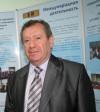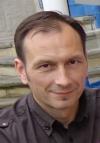1. Pevzner M.N., Graumann O. Obrazovanie bez granic: Mezhdunarodnye istochniki obuchenija cherez vsju zhizn'/ Bildung ohne Grenzen: Internationale Ressourcen für Lebenslanges Lernen / Koncepcii i strategii nepreryvnogo obrazovanija v mezhdunarodnom kontekste: sbornik materialov mezhdunarodnogo foruma (Sankt-Peterburg, sentjabr' 2012); pod obshh. red. S.V.Zholovana, sost. N.V.Bogatenkova: v 2 ch. – SPb: SPb APPO, 2012. – 309 p. – ISBN 978-5-7434-0614-5. – Ch.1. – P. 4-12
2. Gol'c R. Mezhdunarodnaja akademija gumanizacii obrazovanija (MAGO). Vospominanija o vremeni vokrug ejo osnovanija. URL: http://www.reinhard-golz.de/meshdunarodnaya-academia-gumanizaciya-obrazovania
3. Köppel, Petra (2007): Konflikte und Synergien in multikulturellen Teams. Virtuelle und face-to-face-Kooperation, DUV: Wiesbaden, 355 Seiten
4. URL: http://tempus2013-16.novsu.ru/
5. Menedzhment srednej i vysshej shkoly: 100 novyh ponjatij: Sravnitel'nyj slovar' na russkom i nemeckom jazyke / Avtory-izdateli: O. Grauman, R.V. Kekk, M.N. Pevzner, A.G. Shirin. – Hildeshajm, Germany, 2004.













